When you are Lost
If you lose your bearing and become lost, how you react will determine whether it will be a brief annoyance or lead to a full rescue situation.
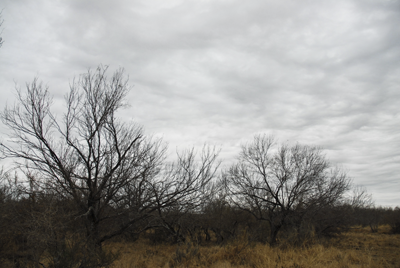
On an overcast day with no constant wind, it is very easy to get turned around. Various factors, such as a rapid change in the weather or impending darkness can make the event more challenging for everybody.

When faced with a survival situation the most critical factor is your state of mind. Remember the acronym, S.T.O.P.
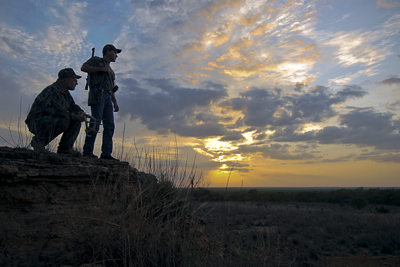
Stop- the first thing to do is admit that you are lost or in trouble.
Think- Remain calm and think clearly.
Observe- the area and conditions around you. Look for shelter, fuel, water and food. Whenever you arrive at a hunt begin observations of landmarks that can help you later.
Plan- take an inventory of your supplies. Check your survival kit and other resources. Plan how you are going to use them best. The planning and preparation you do long before leaving home to make sure you are familiar with and have all the necessary equipment pays off in emergencies. Prepare for safety, comfort, night time, weather conditions, and rescue/signaling.
Rule of 3 - you can live:
3 minutes without air
3 hours without warmth
3 days without water
3 weeks without food
Stay put!
In many cases staying where you are is the best choice. Moving around wastes energy, makes you anxious, and makes you harder to find. If you do move, don’t cross fences. If you follow a fence, it will usually lead you to a gate or road that will be familiar and in the area where others will be looking for you.
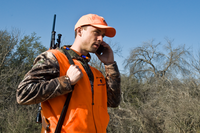
Cell phone coverage is getting better and better. Test reception when you arrive and as you change locations.
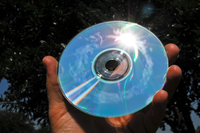
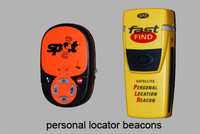
Signaling for Help
The international emergency signals for distress are three evenly spaced shots from a firearm, three blasts of a whistle or horn, or three campfires evenly spaced. Signaling for help can also be as simple as using something reflective such as a mirror or an old CD to catch the sun and alert rescuers to your position. At the other end of the technological spectrum, you can carry a Personal Locator Beacon, a device that transmits a distress signal along with your GPS location. PLB’s are highly recommended for hunters that frequent coastal waters.
Emergency Shelter
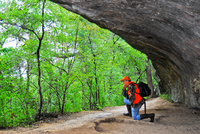
A natural shelter such as a rock overhang or cave is the best shelter to find since it takes little or no effort to make habitable.
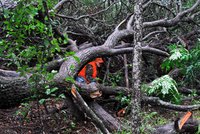
The next best shelter is one that is easily enlarged, such as, deadfalls, woodpiles, brush or debris piles.
The least best shelter is one that you make from scratch. Shelter building takes time and energy, and should never be undertaken in extreme heat or cold unless absolutely necessary.